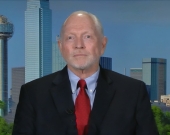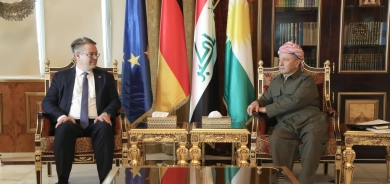Dr. Negrón-Gonzales to Gulan: countering terrorism requires a "good governance" to bring the structural change that people want

Dr. Negrón-Gonzales has taught at UNH since fall 2008 and teaches courses on global studies and comparative politics. She is the Chair of the Department of Security Studies and the Founding Program Director of the Global Conflict and Human Security master's program.Her research covers social movements and civil society, counter-terrorism and human rights, international norms that promote human security (especially the responsibility to protect/R2P), and Turkish and Middle East politics. Her latest research explores the tension between counter-terrorism and human rights and analyzes the ways civil society organizations in Turkey have attempted to promote human rights and hold state officials accountable for gross human rights violations during armed conflict. Dr. Negrón-Gonzales was a Fulbright Scholar (Turkey, 2006-7). She received UNHM's Faculty Excellence in Teaching award in 2013 and a Silver UNH Sustainability Award in 2021. She serves on the Board of Directors of the World Affairs Council of New Hampshire.
Gulan: As you know there are many terrorist and radical groups in the Middle East, that they have caused unprecedented death and destruction, what are the underlying and structural causes for the emergence of these groups and what should be done for countering them?
Dr. Melinda Negrόn-Gonzales: There are indeed many radical groups in the Middle East. It's important to avoid over-generalization because each militant group emerged in distinct circumstances. The underlying causes are complex and differ from one country to the next. Nevertheless, we can see that in each of the countries these militants are most active, there were major governance problems and intercommunal tensions that led to instability, which was exploited by militants and enabled them to thrive. For instance, in Iraq over the past two decades, governance crises, rampant corruption and Sunni grievances have provided an "enabling environment" for jihadists to recruit disgruntled individuals. In addition, spillover from Syria and foreign meddling in Iraq have also contributed to the kind of disorder that allows militants to gain strength. Of course, countering large insurgent groups such as Daesh necessitates a strong military response but that is insufficient. One of the greatest problems in the region and an underlying cause of militancy is government dysfunction. Therefore, countering terrorism requires a "good governance" approach to bring the kind of structural change that people want. Unfortunately, leaders in the region do not seem to be up to the task.
Gulan: To what extent the responsibility to protect has been effective in achieving its goal, especially with regard to the crisis in Syria?
Dr. Melinda Negrόn-Gonzales: The responsibility to protect (R2P) norm has been controversial since its inception. Though many agree with the ideas behind R2P—specifically that the international community should protect people from atrocity crimes if their government is unable or unwilling to do so—there are disagreements about who should protect them and how. The implementation of R2P by the international community requires action by the UN Security Council, and therein lies the problem with respect to Syria. Clearly, the government of Syria has not upheld its responsibility to protect Syrians and has committed war crimes and crimes against humanity. The international community has been unable to fulfil its responsibility to protect Syrians because Russia has blocked numerous UN Security Council resolutions. Still, to date the UNSC did pass almost thirty resolutions on humanitarian access, peace initiatives and chemical weapons in Syria. Unfortunately, these have been grossly insufficient.
Gulan: You have been working on the civil society’s role in holding state accountable for human rights violations, to what extent this experiment has been effective and promising especially in Turkey?
Dr. Melinda Negrόn-Gonzales: Human rights activists in Turkey have faced severe repression in recent years but are resilient. They have been successful in monitoring and documenting abuse, providing support to victims, and raising awareness domestically and internationally. Regarding the latter, activists have for decades taken advantage of Turkey's EU membership aspirations and have provided information to the EU and the Council of Europe, which also pressure Turkish officials to respect human rights. Human rights defenders have also played a role in shaping legislative reforms concerning women's rights, torture, and other policy areas. Thousands of cases were submitted over the past several decades to the European Court of Human Rights, many of which were won. In fact, Turkey tops the list of the Council of Europe's 47 members for number of judgements finding a violation of freedom of expression. Unfortunately, Turkish officials have failed to comply with many of these European Court judgments and also have ignored the European Union's demands to respect human rights. Protecting human rights requires the establishment of more robust international mechanisms in addition to strengthening domestic rights organizations. Despite the aforementioned efforts by Turkey's human rights defenders, the current government continues to roll back reforms. In the absence of a robust opposition, the ruling party is strong enough to resist pressure from domestic rights activists and international actors.















